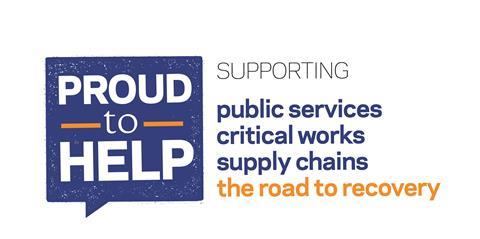As individuals and companies we cannot control this pandemic, but we do have a choice in how we respond to it

“One of our greatest freedoms is how we react to things”, is one of the many beautiful and thought provoking observations in Charles Macksey’s book, “The Boy, the Mole, the Fox and the Horse”. It is a quote that has seemed to me over the last month particularly relevant, at a personal, a business and at a societal level.
The abrupt upending of a great deal of what we all regarded as normal life is outside our control, but the way we respond to it, both today and in how we act in the future as a result, is a test of our individual characters, our corporate adaptability and our nation’s wisdom.
>> ∫√…´œ»…˙TV the road to recovery after the coronavirus crisis
None of us would have wished for the pandemic and the resulting lockdown. Moreover, as the United Nations has noted in its March report on the socio-economic impact of covid-19, the consequences are deeply unequal in their impact, disproportionately hurting the poor, both individuals and emerging economies.
According to the International Labour Organisation more than 50% of the world’s rural populations and more than 20% of its urban lack access to healthcare. Lockdown is much worse for those sharing bedsits in tower blocks than those with gardens in leafy suburbs.
Post crisis, I would like to see the industry governance put on a more formal basis, with the CLC properly funded to carry out its role
But the immense disruption is nonetheless creating real benefits in stimulating the adoption of new practices, like a bushfire clearing the ground for light and water to reach dormant seeds. Our challenge is to identify and nurture those practices as the immediate threat recedes. I’ve collected together a few that I have observed that I would like to see continued to reform the infrastructure and construction sector:
1. Humanity in the workplace
We are seeing a much heightened sense of interest in and caring for those we interact with in the course of business. Calls and emails feel too abrupt if we just dive into a request. We are asking if the families of colleagues are okay and showing real consideration for those who are grappling with educating their primary school children. Our concern extends not just to those in our own community but those in other countries, because we know we are all facing the same challenges. Could we translate this into the construction industry becoming much more diverse and accommodating of flexible working?
2. Industry leadership
Never has it been so important for the interests of particular industries to be advocated clearly into government, and for bespoke solutions to be found. The past weeks have highlighted again the challenges of a fragmented industry, where decisions by individual businesses to close or remain open affect the whole supply chain. But we have also seen an unprecedented level of leadership, in particular by the Construction Leadership Council and Build UK, collaborating with government, for example to develop Site Operating Procedures to provide guidance on how to allow work to continue safely where it can. Post crisis, I would like to see the industry governance put on a more formal basis, with the CLC properly funded to carry out its role.
3. Digital communication
It is frankly astonishing the extent to which many businesses have been able to move from face-to-face meetings to digital, and then discovering they can operate more efficiently than before. Had covid-19 hit the world a few years ago we would have had nothing like the capacity and tools in digital connectivity that we have today. But the experience has also highlighted the digital divide – it’s fine for those that have the connectivity and a disaster for those that don’t. Construction generally has been a slow adopter. The fact that much of the work is on-site is no excuse. Two years ago I witnessed at L&T Group headquarters in Mumbai their full digital connectivity in real time to every site and every piece of equipment. It can be done. Perhaps now the whole industry will be propelled into adoption.
4. Sustainability matters, even more
In the first weeks of the lockdown I feared that the diversion of the world’s attention to the immediate threat would set back the sustainability agenda by precious, irreplaceable years. But the evidence already is that attention on sustainability is if anything growing, particularly amongst business leaders. The vulnerability of our society that covid-19 has revealed is a sharp reminder that what we take for granted can easily be lost. Climate change will similarly do immense damage if we don’t get serious about addressing it, collectively. And our unpolluted skies have shown us how life could be better. Amsterdam has just announced that it will rebuild its economy on the basis of policy decisions which respect planetary sustainability boundaries. Will construction now get serious about embracing the circular economy with businesses committing to pathways to net zero?
No-one really knows how quickly we will be back to “normal”. But I am in the camp of hoping that the new normal will not be the same as the old, but much better. Because of how we all reacted to things.
Richard Threlfall partner and global head of infrastructure, KPMG International
Contact us at newsdesk@building.co.uk with the subject line ‘Proud to help’ or via LinkedIn or Twitter with your #ProudtoHelp stories





























No comments yet